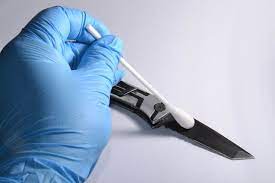“First-time offense credit card theft” What happens if someone uses a debit or credit card fraudulently? What are the consequences of card fraud? The particular penalties for using a credit or debit card fraudulently vary based on the severity of the fraud, the amount taken, and the goods received. In most circumstances, the punishment grows in proportion to the amount.
What Is Credit Card Fraud?
Fraud conducted with a payment card, such as a credit card or debit card, is referred to as credit card fraud. The goal could be to obtain products or services or to transfer money to another account that is under the control of a criminal. To assist financial institutions in securely processing card payments and lowering card fraud, the Payment Card Industry Data Security Standard (PCI DSS) was developed.
Credit card fraud can be authorized—where a legitimate customer uses their credit card to make a payment to another account that is managed by a criminal—or unauthorized—where the account holder does not provide permission for the payment to proceed and a third party completes the transaction.
First-time offense credit card theft: Credit Card Fraud Components
There are several different ways that someone can use a debit or credit card fraudulently, including:
Obtains, takes, signs, uses, sells, purchases, or falsifies someone else’s credit or debit card information fraudulently;
Uses his or her card while being aware that it has been suspended, expired, or that there are insufficient funds on the account to cover the charges; or
Sells products or services to a third party knowing that the credit or debit card being used was obtained fraudulently or without their consent.
First-time offense credit card theft: State and federal legislation
Credit and debit card fraud is a major issue, with legislation enacted by states and federal governments.
State Statutes
State-specific laws prohibit unauthorized card use and possession. However, They have laws against physically possessing and using a stolen card. Identity theft involves stealing only account number information. Additionally, Alabama Code 13A-9-14 prohibits card theft, and 13A-8-192 punishes identity theft.
Some states have enacted greater safeguards than others. California Penal Code establishes regulations to prevent credit card and identity theft.
- Section 484e (credit card theft)
- Section 484f (falsification of credit card information)
- Section 484g (fraudulent credit card use)
- Section 484h (retailer credit card fraud)
- Section 484i (forgery of credit cards)
- 484j (publication of credit card details)
Federal Regulations
Federal regulations prohibit using stolen or fraudulent credit or debit cards for interstate and foreign commerce. The consequences for such use are a fine of not more than $10,000 and/or ten years in prison. The following are federal statutes that address credit card fraud:
- 15 U.S.C. 1644 (fake federal credit card)
- 15 U.S.C. 1693n (fake federal debit card)
- 18 U.S.C. 1028 (federal impersonation)
What Exactly is Unauthorized Credit Card Use?
The use of a credit card without authorization is known as unauthorized usage.
For instance, if you misplace your card and someone finds it and uses it, that is an unlawful use.
If you provide your card to someone else to use, you have authorized their use. Even if the individual uses the card for anything else, it may still be considered an authorized user. The card company may then offer you a new credit card.
Credit Card Theft Penalties
The severity of the offense and the specifics of the crime determine the penalty for credit card theft. If a credit card is taken but not used, the offense could be classified as a misdemeanor or a felony. However, it is more likely that a crime will be classified as a felony with a lengthier potential term the more complex it is, such as card fraud.
Credit card fraud involving the theft of a card or a number normally carries a prison sentence ranging from one to five years. Identity theft is punishable by prison sentences of up to ten or twenty years. Also, if the thief is caught with the instruments of the trade, such as credit card skimmers, they may face additional prison time.
Credit Card Theft Types
Credit theft is the use of a credit card (or any other sort of credit) to purchase goods or services to avoid payment. While the actual loss of a credit or debit card from a wallet or handbag is understandable, it is much more common today to have information stolen than the card itself. Credit card theft comes in many forms, with new and inventive tactics emerging practically daily. The following are the most typical types of credit fraud:
- Using stolen identification to open new accounts
- Taking control of an existing account
- Using a counterfeit card to make purchases when the card is not present
- Using a forged card
- Using a stolen or misplaced card
Identity Theft
Identity theft is one of the most destructive forms of credit card fraud because once personal identifying information is obtained, it may be used for a variety of fraudulent actions. Several credit card scams rely on identity theft. If a criminal obtains a person’s identity, they can register new accounts or contact credit card companies to change addresses to take over an already-existing account.
Data Breach
Sometimes identity theft falls short of stealing a person’s entire identity. The burglar might only grab the number from one card. This can happen when a company’s client information is hacked in a data breach. Customer’s credit card information is sometimes stolen from companies that keep it. The thief can then use the credit card number to make telephone or online purchases without having to provide the credit card.
Credit Card Imprints Stolen
When you used a credit card, an impression of the card was made on carbon paper. The credit card numbers could then be taken if the carbon paper was discarded. That doesn’t happen very often these days, but electronic credit card skimmers can read credit card information from the magnetic strip on the card. There are two types of electronic card skimmers.
One type is a portable reader, which can read cards in people’s wallets and purses as they walk along the street. A reader that is attached to a stationary location, such as an ATM machine or a gas station pump, is another form.
Credit/Debit Card Theft
Then there’s the old standby for credit card fraud, which is the physical theft of the card itself. A handbag or wallet can be stolen, but a credit card can also be misplaced. There are several methods for stealing a credit card. They might be stolen from mailboxes or as part of a house or automobile burglary. In a restaurant, a waiter can gather information. This form of theft frequently results in a fraud spree, in which the offender charges as many cards as possible before the victim has a chance to report the card lost or stolen.
Credit Card Fraud Defenses
Credit card fraud is defined by state and federal statutes as having the intent to defraud or steal. Furthermore, using someone else’s card by mistake or accidentally using a canceled or expired card are possible defences for criminal prosecution for credit card fraud.
Related Article:
THEFT OF SERVICES: Examples, Defenses Penalties, and Sentence In Texas
Can You Get A Job Without ID? Why You Can or Cannot
HOW TO BUY A HOUSE IN CALIFORNIA In 2022 (Detailed Guide & Tips)



